News
Time to review lagoons, end pilot program in Jones County
Posted on January 7th, 2021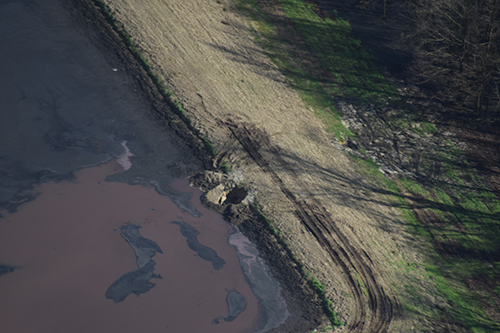
A patched breach points to where an estimated 1 million gallons of hog waste spilled from a D.C. Mills Farm lagoon and made its way to Tuckahoe Creek, a tributary of the Trent River, on Dec. 21. (Photo by Katy Hunt)
A million-gallon spill of hog waste into Tuckahoe Creek over the Christmas holiday points to the need for state officials to review all active lagoons.
“It’s time for North Carolina to inspect all active lagoons — starting with those in the 100-year floodplain or within 500 feet of any stream — to prevent additional contamination with untreated hog waste,” said Heather Deck, executive director of Sound Rivers.
On Dec. 21, an estimated 1 million gallons of liquid hog waste spilled from a lagoon on the D.C. Mills Farm on Lee Mills Road near Trenton, entering Tuckahoe Creek, a tributary of the Trent River. Deck said the lack of action by the North Carolina Department of Environmental Quality — a product of lack of funding and inspectors — is what leads to spills contaminating local waterways.
The industrial hog operation is associated with Murphy-Brown, LLC, a subsidiary of Smithfield Foods, and can hold up to 3,520 hogs. On the day of the spill, Smithfield Foods removed all animals from the site — yet the public was not notified of the spill until Dec. 23. D.C. Mills was issued notices of deficiency and violation for the excessive amount of hog waste in the lagoon in February and July of 2020.
Lower Neuse Riverkeeper Katy Hunt tested water upstream and 3 1/2 miles downstream from the spill on Dec. 23. Though three days after the spill had occurred and at a point where three other creeks’ flows fed into Tuckahoe Creek, the amount of e. Coli bacteria in the downstream samples was more than double the upstream number.
On Dec. 28, Hunt identified the breach in the lagoon berm on a flight over the farm.
“It looks it was a break-through on one berm, and it looked it had been patched,” Hunt said.
According to NCDEQ, soil and water engineers are slated to visit the site and give recommendations on the lagoon’s repair, and an NPDES permit will likely be required for D.C. Mills to retain hogs in the future.
D.C. Mills is associated with another Jones County facility, Lanier Farms, which was responsible for another million-gallon spill into the Trent River in August 2017, leading to Smithfield pulling all animals out of that farm, as well.
Part of the issue could be due to the fact that Jones County is part of a pilot program in which the Division of Soil and Water is tasked with inspections, rather than NCDEQ.
“The pilot program is not working, and communities downstream suffer the consequences,” Hunt said.
With two massive spills over the last several years, Deck said it’s time to end the pilot program and give NCDEQ the necessary resources for more effective monitoring.
Related News
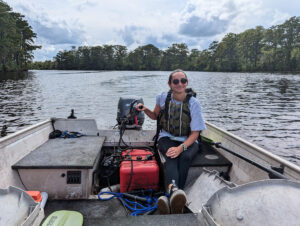
Riverkeeper monitoring Tar-Pamlico Water Trail
July 25th 2024

Rain ramps up trash-trap cleanouts
July 25th 2024

Riverkeeper, intern take on emergency trash trap cleanout
July 25th 2024

Tar-Pam Riverkeeper investigates Cub Creek turbidity
July 25th 2024
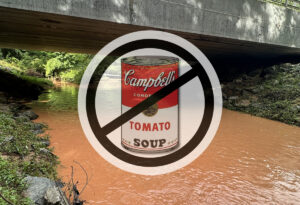
Heavy rains lead to sky-high turbidity on Lick Creek
July 25th 2024
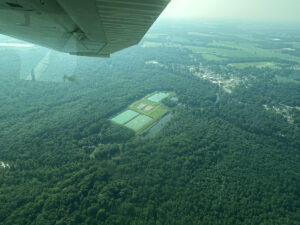
Riverkeeper: What goes up, must come down
July 18th 2024
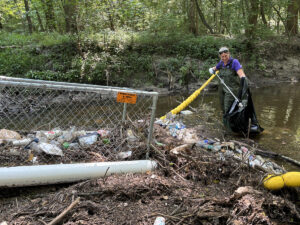
Greenville’s trash trap gets emergency cleanout
July 18th 2024

Sound Rivers gets close up of cyanobacteria
July 18th 2024

